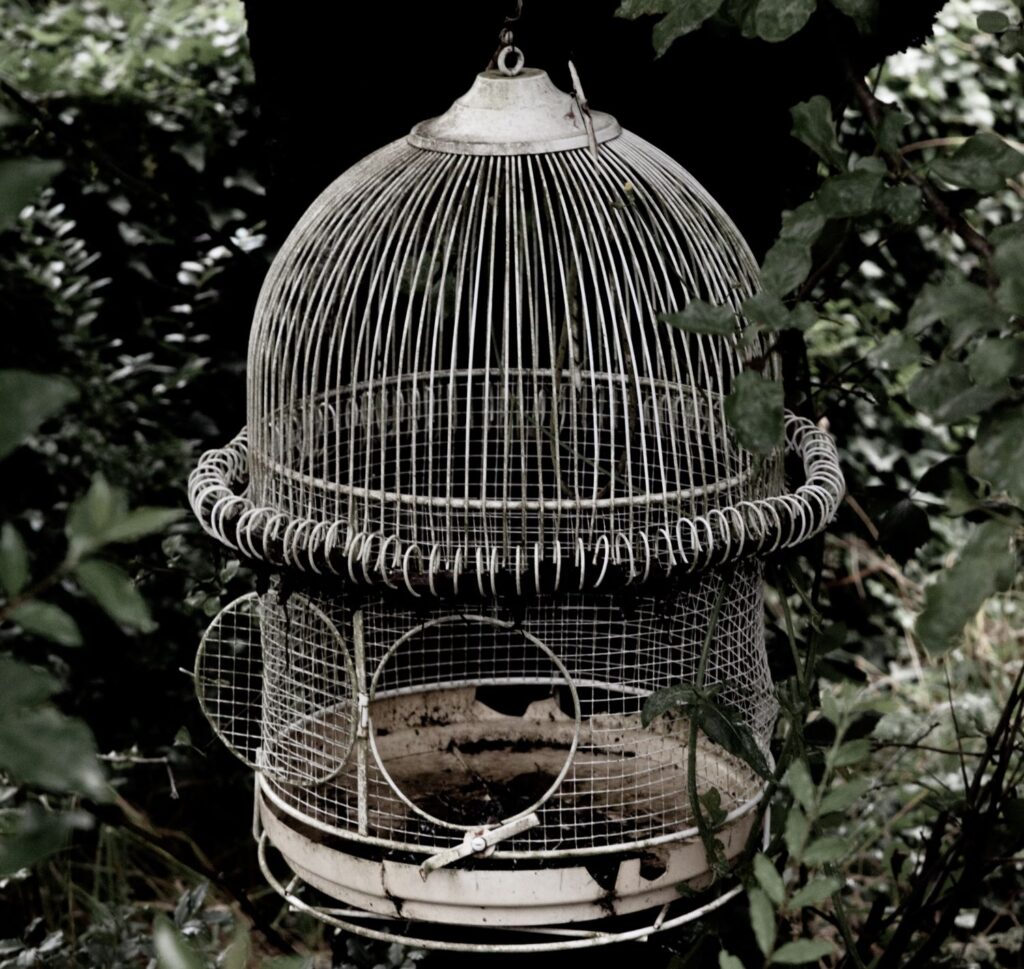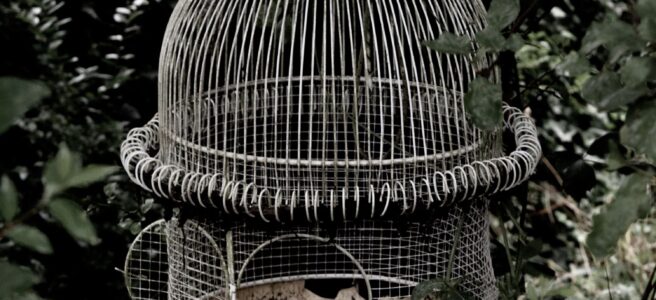Alternative title: Gratitude practices for the grieving, ashamed, and stuck

Of course we should be grateful—everyone says so. Literally everyone.
Expressing gratitude to their deity is central to every major religion. Thinkers as diverse as Cicero and Oprah, Dietrich Bonhoeffer and Tony Robbins tout not only its benefits, but also its necessity for a well-lived life. A Gratitude Industrial Complex has sprung up to sell us journals, coloring books, posters, wall hangings, online courses, greeting cards, candles, jewelry, and social media memes. They all say that gratitude is the root of happiness, grace, beauty, love, sweetness, abundance, comfort, and success.
That sounds lovely.
But life is not always lovely.
Gratitude experts know this, too, and will remind us that there are always things we can be grateful for, even during difficult times. These are often small things in our lives that make us happy, bring us comfort, or are admirable—a hug from a child, a warm sunbeam, a gift of a meal.
Again, lovely.
But akin to using a chef’s knife only to spread butter on your toast: an underuse of a powerful tool. In relegating gratitude to the realm of the pleasant and admirable, in linking it to happiness and comfort, we weaken its ability to change us for the better, especially when life is difficult.
“Gratitude is happiness doubled by wonder.” G.K. Chesterton
If gratitude is happiness, what am I supposed to do with my gratitude that my cousin Esther died of colon cancer in more pain than a human being should be able to endure at age 39 with a 3-year-old daughter who would have no natural memories of her—but secure in her father’s love for the first time in her life?
Because I’m grateful for that, but I also fervently wish she were still alive to know the daughter who is the spitting image of her yet is also her own glorious person. Being grateful that she died secure in her father’s love does not make me one bit happy. Years later, I still grieve her.
Esther and I were born a month apart in the same city, went to the same tiny school for grades 5-8 where we were the top grade for the last three of those years, lived together for a year in college, and became close as adults after my move to New York City gave her a free place to stay. We both saw the spirit of our Opa (Dutch for grandfather) on the same night when we were 9. I’d thought we were as close as the sisters neither of us had, with the petty rivalries and jealousies and intense confidences.
But she never told me how unhappy her home life was. I didn’t find out until she was dying; some stories I didn’t learn until after she died. Her mother struggled with mental illness and alcohol abuse and their family life often revolved around managing or reacting to those. In addition, the things Esther was interested in and good at weren’t things her parents put much stock in, so she didn’t feel appreciated.
When it was clear that she wouldn’t make it through her cancer, she and her father were discussing her desire to be cared for at home. They went back and forth until Esther plaintively asked, “Don’t you love me enough to take care of me?”
What could my uncle say but, “Yes”?
Because he did. He’d loved her that much all along, of course.
In the months that followed, he took the tenderest round-the-clock care of her, burping her colostomy bag, managing her mountain of medications, hand-feeding her when she became too weak. She died not only secure in the knowledge of her father’s love, but completely wrapped up in the experience of his love for her. I am so grateful for this—not only for her, but also for my uncle.
But happy? No.
“Gratitude paints little smiley faces on everything it touches.”
Richelle E. Goodrich
If gratitude is all about feeling warm and cozy, what am I supposed to do with my gratitude for my friend Bernadette, who called me out on a matter of racial stereotyping? Because I’m grateful to her, but any warmth I felt at the time was due to the heat of shame burning up my neck. There was nothing smiley about it.
Friends and I were talking about poll statistics before the 2016 election and I made a desperate joke about Hispanic people and cell phones and she called me on it. At first, I defended myself, because I knew my intentions, and I knew my love and respect for the people I’d stereotyped. I wasn’t mean-spirited. So I justified my behavior. After we parted it took all of 10 minutes for me to realize that I’d been wrong, that my intentions were not the most important thing in our interaction—that my words were.
I immediately sent her an apology, and by the time I saw her the next day, I was grateful to her for calling me out, and told her so. Because she had the courage to say what she did to my face, I was given the opportunity to hear my words from another’s point of view: I couldn’t hear the stereotyping until she revealed it to me. I asked for her forgiveness, she gave it, and our friendship deepened. I am grateful for this experience because it made me a better, more humble person.
Was it cozy? No. Is there a smiley face on the encounter? No. My gratitude has not made me any less embarrassed by it.
“The roots of all goodness lie in the soil of appreciation for goodness.”
Dalai Lama
If gratitude is all about highlighting things that are admirable, what am I supposed to do with my gratitude that my husband of 21 years was arrested for a sex crime, enabling me to leave a marriage that was good enough, but that was also breaking my heart every day? Because I’m grateful for that, but what he did was not at all praiseworthy, and caused both immediate and ongoing trauma in our family.
My marriage wasn’t horrible. My spouse and I could still have fun together, and we worked well on negotiating the needs of the kids and family life, but there was an essential hollowness to our near-sexless marriage, and there were years of agreements that he didn’t live up to, deals he didn’t keep. I was last in his life, but I decided over and over that I wouldn’t leave him; it was part of my deep value system to stay and I couldn’t imagine explaining why I was leaving to my kids. So I used the practice of gratitude to make my marriage livable for me: focused on what was good about our relationship, worked at being compassionate instead of bitter, and was disciplined about thanking him for every little thing. The day-to-day lived experience was more pleasant, but gratitude didn’t address any of our deep problems, neither did it heal my heartbreak.
I told very few people about this because I didn’t see the point: no matter what I did, he wasn’t changing, and I wasn’t leaving, so why make other people frustrated with him? After all, he was my husband and I loved him. It left me utterly stuck and lonely.
So once he was arrested and the truth (and then more truth) came to light, making sense of years-worth of his behavior, it was a relief: here was a solid reason to leave. I was grateful for that (and that he was caught before anything worse happened), but was there anything praiseworthy to focus on? No.
But that’s also not entirely fair: our marriage produced two wonderful and sometimes infuriating children. It nurtured and encouraged our friends. We supported each other in our artistic pursuits and made it possible for each other to grow in our chosen fields. I can be grateful for that, but it’s a complicated gratitude.
A.J. Jacobs ran into a similar problem when he tried to thank everyone involved in his morning cup of coffee. In Thanks a Thousand, he writes that when he told his friend Brian that he was thanking dockworkers and truck drivers, Brian asked whether he was going to thank the meth dealers for selling drugs to the drivers so they could drive all night. That put Jacobs in a quandary:
“Brian’s comment may be flippant, but it sticks in my mind. It’s brought up an interesting problem. Not everyone who helps get my coffee to me is a good person. Or at least not everyone is acting in a way that is good for the world…. So…does the CEO of Exxon deserve my thanks?”
Jacobs doesn’t answer that question, but thanks the CEO of Exxon anyway, sending what he describes as a passive-aggressive, “Thank you, now please change,” letter.
Gratitude can be more of a mixed bag than theologians, thinkers, and marketers often give it credit for. And I haven’t even gotten to people who are grateful for things other people think are tragic, like people with disabilities being grateful for their disability.
“Attention must be paid.” Linda Loman (Arthur Miller, Death of a Salesman)
So what gives these non-pleasant experiences of gratitude their power? At its base, gratitude is about paying attention. The pleasant versions of gratitude have us paying attention to things that make us feel happy, warm, cozy, and positive. The more robust versions can withstand us paying attention to things that are true whether they make us feel sad, uncomfortable, ashamed, or free because the more robust version highlights our connectedness–and we need connection.
“As adults connection nourishes us in a literal, physiological way, regulating our heart rates and respiration rates, influencing the emotional activation in our brains, shifting our immune response to injuries and wounds, changing our exposure to stressors and modulating our stress response.”
Chapter 6, Burnout, Emily Nagorski and Amelia Nagorski
Because of my cousin Esther’s illness and death, I know her better and I know my uncle better—I am connected to both of them in deeper ways than I was before. Because of my friend Bernadette’s forthrightness and her forgiveness, I am better connected to her, and better connected to myself as a person who can be wrong and not be destroyed by it. Because of my now-ex-husband’s arrest after years of lies and neglect I am better connected to myself because I’m no longer trying to convince myself that grievous behavior was loving; I’m better connected to my community because of the help they gave me in the aftermath; I’m better connected to friends whose families have gone through something similar; and I’m better connected to my children because of the intensity of what we went through together. My gratitude for each of those events is rooted in those connections and branches out in my writing, my relationships, and my work with children.
I am both more compassionate and more courageous, with myself and with others, than I was before these events. There’s no need to hide from or to deny sadness, grief, shame, or anger as incompatible with the practice of gratitude, or to expect gratitude to lift me out of those states, because I know I can be grateful for things that have made me feel each of those emotions.
So let’s free gratitude from the cage of loveliness. Practicing gratitude may bring you happiness, beauty, sweetness, and success. But gratitude that rises from situations of grief, shame, and anger may connect you more deeply to yourself and to others.
I’ll take gratitude-fueled connection over unrelenting sweetness any day. The more tightly knit our connections are, the more they’ll sustain us, encourage us, and challenge us to see connections where we’d been blind to them before. That can change the world. And that’s something to be deeply grateful about.

